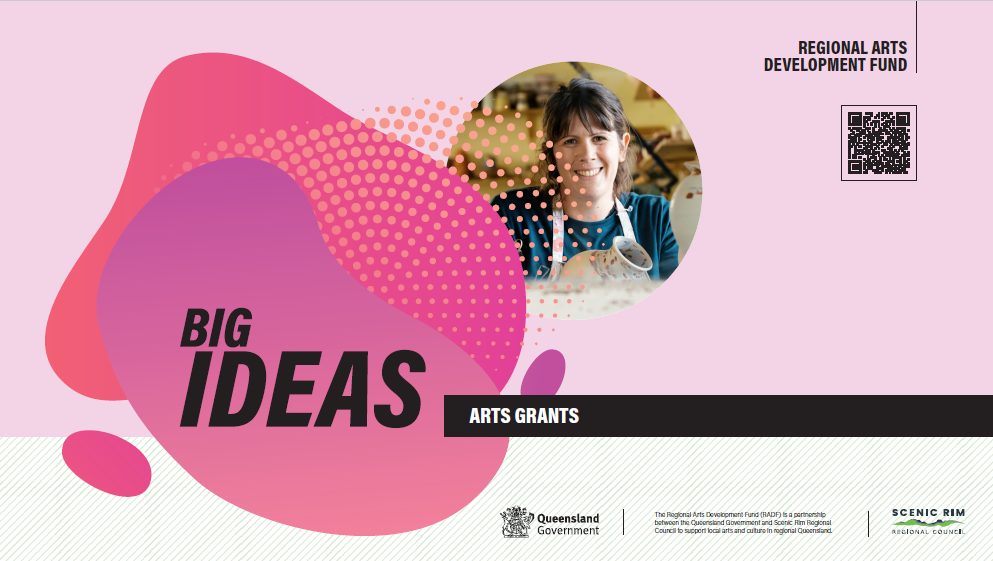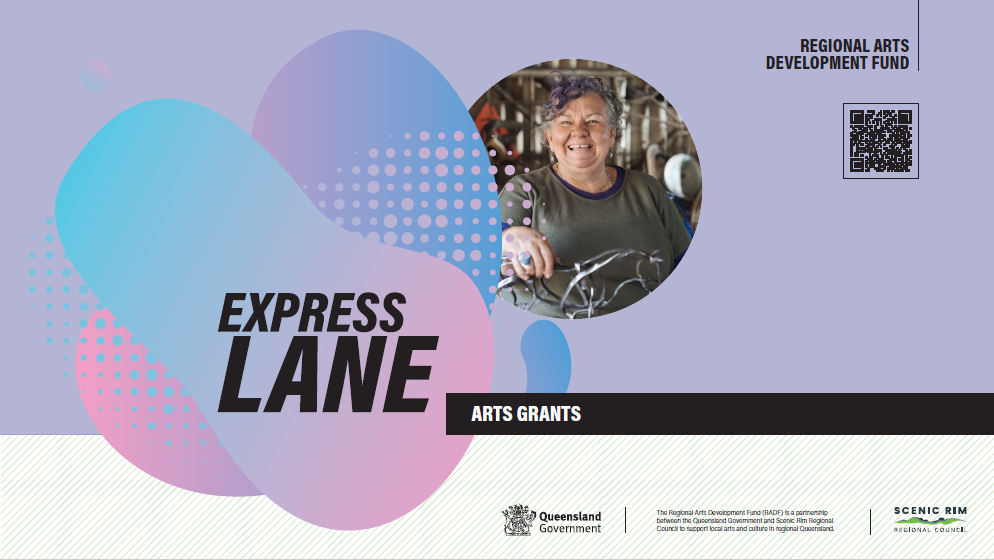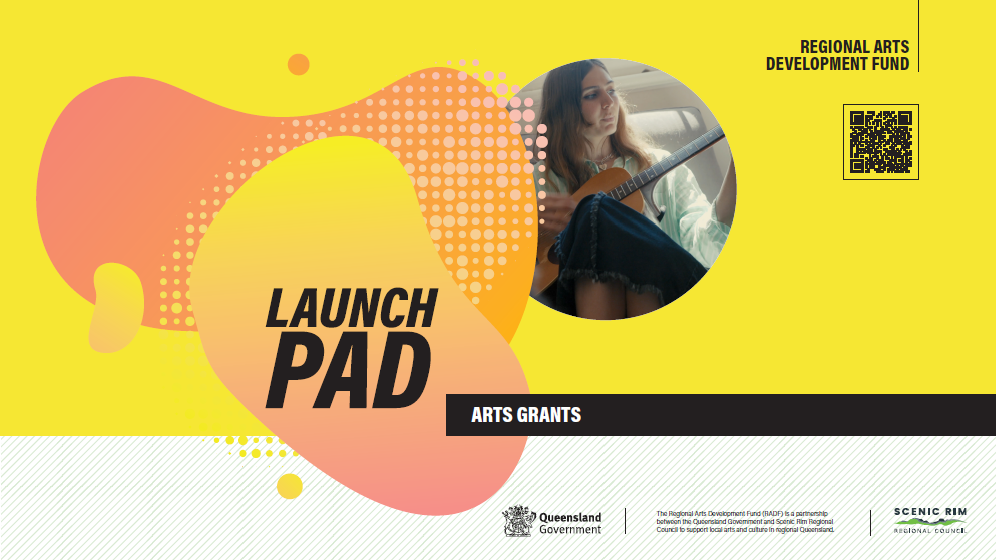RADF 23-24 is NOW OPEN
What is RADF?
The Regional Arts Development Fund (RADF) is a partnership between state and local governments which invests in quality arts and cultural experiences across Queensland based on locally determined priorities.
RADF promotes the role and value of arts, culture and heritage as key drivers to: support diversity and inclusivity; grow strong regions.
RADF Objectives
-
Build local cultural capacity, cultural innovation and community pride
-
Provide public value for Queensland communities
-
Provide opportunities for local communities to participate in arts and cultural activities
-
Deliver Queensland Government’s objectives for the community
2023-2024 RADF Guidelines can be downloaded here (PDF).
Scenic Rim Regional Council has three RADF funding streams:
1. Big Idea Arts Grants - Under Assessment

The Big Idea Smarty Grants Application can be found here.
In developing your application, it is essential that you demonstrate how your project addresses one of the following four categories.
1.Valuing Young People
2.Supporting Local Artists
3.Supporting First Nation Arts
4.Enhancing our Towns and Villages
-
Grants available in 23/24 total $52,175
-
Snapshot applications closes 8 Novemebr 2023
-
Shortlisted applicants notified 30 November 2023
-
Full Applications due 24 January 2024
-
For projects commencing after 1 April 2024
Please Note: In 23-24 there is only one Round of Big Idea grants
2. Express Lane Quick Response Grants

The Express Lane Smarty Grants Application can be found here.
Grants for Professional Development opportunies outside of the Big idea grant round. This can include:
• attending professional development seminars, conferences or activities
• attending masterclasses or mentorships with recognised arts and culture professionals
• presenting or showcasing at an appropriate arts event
3. Launch Pad Young Creatives Grants

The Launch Pad Smarty Grants Application can be found here.
The Small Arts Grants provides an opportunity for emerging artists and producers aged 16-25 years to access a wide range of resources to support their arts practice. A young creative applying for this grant needs to demonstrate an engagement in the Scenic Rim's cultural or creative industries.
• art materials for concept development or to
• publications, subscriptions, books or digital programs
• travel to workshops, mentorships or work experience
• mentorships with professional arts or cultural workers
• equipment for an arts practice
• printing of promotional material for an arts practice or event
• workshops, courses or professional advice
• folio development and production
• Grants up to $1,000
• Five grants per year
• No deadlines, apply anytime
• Assistance available
• Simple application
• Any Artforms or cultural workers
Applicants are required to provide a Letter of Support from a professional arts or cultural worker, teacher or tutor verifying the applicant's dedication to their arts practice
All activities that have received RADF investment (including individual career development/arts and cultural projects and activities or council strategic initiatives) are required to complete an outcome report within 8 weeks of the completion of their project.
Outcome Reports for Community Grant rounds fall under two categories:
Public Projects Outcome Report
This outcome report template is for those undertaking activities that have or will lead to a public outcome – e.g. exhibitions, events, engagement projects, creative developments, performances, place making projects, publications and public workshops.
Professional/Career Development Outcome Report
This outcome report template is for those undertaking professional/career development activities – e.g. attendance at conferences and training workshops to develop your own skills, knowledge or career.